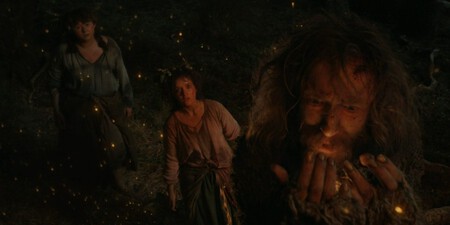Like me, there are surely more fans of Tolkien’s work and the mythology of Middle-earth who were upset by the ending of this second season of The Rings of Power, even if just a little. Because while this adaptation of Professor Tolkien’s literary work can be defended as a more than worthy entertainment product, as an adaptation of the original mythology, it seems rather weak to me. But the ending that this second season offers, with one of Tolkien’s main characters as the main protagonist, has offended me a little, even.
Spoiler Alert: The text contains major spoilers about the ending of The Rings of Power season. So, if you haven’t seen the final episodes, it’s better to read this later.
The True Identity of The Stranger
Although the first season of The Rings of Power laid the groundwork for a great surprise revelation, the initial episodes of the second season have gradually been dismantling the mystery. The clues are quite evident: the young hobbit Nori is searching for a suitable name for The Stranger and seems to have been inspired by one of the nicknames that the leader of the clan of The Strong (Stoors) gives to The Stranger, calling him “Grand-Elf,” which bears a remarkable resemblance to “Gandalf.” From here, good luck to the translators.
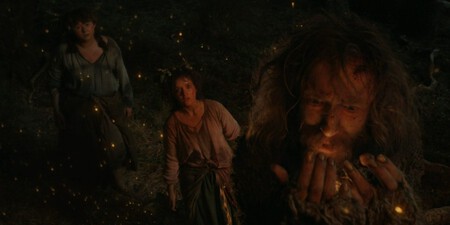

The name Gandalf is not the only one the wizard has had throughout his existence; originally, he was known as Olorin in Valinor, but over time he has adopted several nicknames in Middle-earth, such as Mithrandir, the Old Grim, and Stormcrow. The nickname “Grand-Elf” bestowed upon him by the hobbits in this series easily transforms into “Gandalf,” in a childish play on words. The wizard’s quest for his staff, which is a crucial element of his identity, also resonates with the original meaning of his name. Although this interpretation of the story deviates from Tolkien’s work, the idea that the hobbits gave Gandalf his name is a poetic addition that strengthens his connection with these small inhabitants of Middle-earth, but it is so poorly developed that it hurts.
It is a play on words equivalent in Middle-earth to “nun, nunamon, ham”
The great moment of revelation of the identity of The Stranger, who turns out to be Gandalf (surprise), seemed to me to be an uninspired play on words in relation to his relative stature compared to the hobbits. In English, the wordplay is quite evident: “Grand-Elf” becomes “Gandalf.” I have no problem with entertainment products aimed at a younger audience, but I don’t like being deceived and then given poor excuses. The narrative has been constructed in such a way that, while in the first season there was still room for debate, this second one has left little room for ambiguity. Interactions with characters like Tom Bombadil and the aesthetic of The Stranger were already too obvious clues. The origin of the name itself is downright embarrassing.

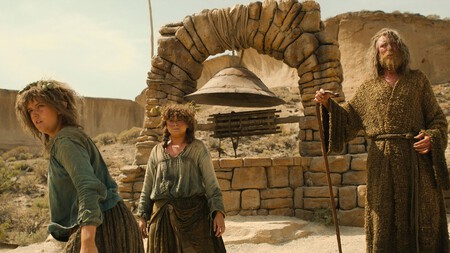

In Tolkien’s work, Gandalf is not only a combatant against Sauron, but also a symbol of hope and wisdom. His journey is one of transformation and sacrifice, where every decision he makes has profound repercussions on the fate of Middle-earth. The way the series has handled his origin and revelation of Gandalf almost seems like a joke at the character’s expense. The Stranger, being presented as a confused and almost caricatured figure, along with the memory of his true origin, also loses all the depth that Tolkien bestowed upon him.

Lack of Elegance in the Adaptation
Adapting a literary work to an audiovisual format comes with challenges, and often concessions and sacrifices must be made due to the change in narrative context. It is not easy for creators to find a balance between being faithful to the original work and making the story resonate with a contemporary audience. However, in this case, the series seems to have made very questionable creative decisions that neither add anything of special interest to the series nor respect the material they supposedly adapt. The way certain plots are portrayed or certain characters are represented, which in Tolkien’s work have great symbolic and narrative importance, has been handled superficially, perhaps trying to create certain narrative tensions or plot twists. This is when Tolkien’s chronology is not directly mistreated.
The lack of elegance in the adaptation is also evident in the way the characters interact with each other. The dynamic between The Stranger and the hobbits, for example, should have been an opportunity to explore Gandalf’s special relationship with the peoples of Middle-earth and his role as a mentor and protector. However, what we see is an interaction that seems anecdotal and often forced, ridiculous, and cloying.
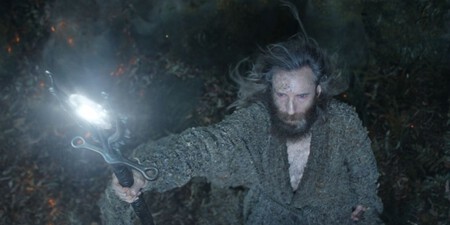

Gandalf’s presence simply seems to be moving the character from point “A” to “B” on the map while trying to maintain a supposed mystery that I think surprised very few followers of the series. A very simple way to present the character and keep him in action until his participation in future major events is truly necessary. This lack of depth in interpersonal relationships and character development contributes to Gandalf’s revelation not having the emotional impact it should have.
The moment The Stranger decides on his name is a strange and inelegant twist. A childish play on words that may remind some of Game of Thrones, where the revelation of Hodor’s identity became an iconic moment of the series, but also generated a number of memes and reactions of all kinds on social media. Although Hodor’s name origin is directly linked to his tragic outcome, the way his story was presented from the beginning of the series was careful and fit within the overall storyline. It had a purpose.

On the other hand, The Rings of Power seems more concerned with surprises and plot twists than with the construction of a solid and coherent narrative. Hence, like a bad magician, it pulls out this surprise like a suffocated rabbit from the hat where it has been waiting for two seasons, to present Gandalf as The Stranger. As if this season, or the trailers and promotional teasers, hadn’t already given it away. It comes out of nowhere and adds nothing, because the series has tried to mislead with The Stranger’s identity, but in doing so, it has neglected the construction of his personality and evolution throughout the season. I imagine that in future installments of the series, the character will grow and acquire a certain entity, but the stuttering way the character is finally baptized cannot be fixed.
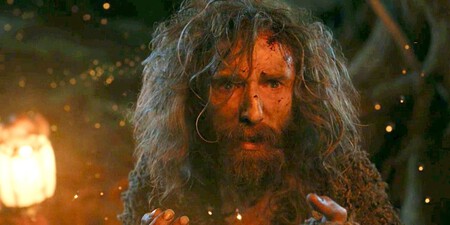

A Lack of Respect for Tolkien and His Fans
Okay, I am the first to acknowledge that we are talking about fantasy, unreal worlds, and escapism. That these things shouldn’t be taken so seriously. But as a producer who proudly embraces being an adaptation of one of the most important literary works of the 20th century, it is essential to do so with a minimum of care and love.
I am upset by the feeling that the series approached Tolkien’s work with a “anything goes” attitude
Even acknowledging that Tolkien does not make things easy in this regard, as in many points he is imprecise about his own mythology; also accepting that he is sometimes contradictory, and that in Gandalf’s specific case he writes down different origins; with all that, there is a certain consensus, and above all, a certain elegance in depicting characters and ideas. What annoys me is the feeling that the series approached Tolkien’s work with a certain “anything goes” attitude in its effort to make its approach to this mythology pop for the general public. An approach designed for a broader audience whose greater knowledge of Tolkien’s work may come from Peter Jackson’s films, which The Rings of Power so desperately tries to resemble.
Adapting an iconic literary work like Tolkien’s is not an easy task, and I am not asking The Rings of Power to try to explain in detail the origin of the Blue Wizards and complicate the viewers’ life with the Song of the Ainur or anything like that. But in its expected reductionism, it shouldn’t be such a deceitful and clumsy story. An adaptation of Tolkien requires a prior understanding of its themes, characters, and the world he created. And as much care as respect. Not everything goes just because it might look good on screen for a moment.
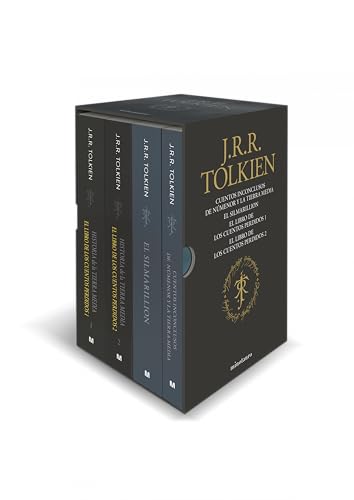
Estuche Tolkien 2 (Silmarillion, Cuentos Inconclusos
